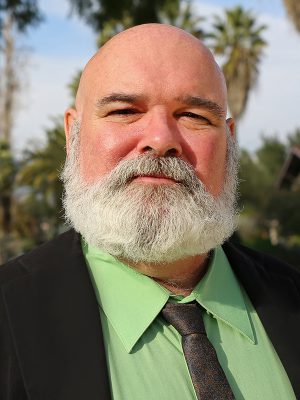 Professor of Philosophy Brian Keeley
Professor of Philosophy Brian Keeley
Claremont, Calif. (April 5, 2017)—Pitzer College Professor of Philosophy Brian Keeley will deliver the keynote address at the 2017 International Conference on Conflict, Terrorism and Society at Kadir Has University in Istanbul, Turkey, on April 11-12, 2017. The theme of this year’s conference is “Culture and Politics of Conspiracy Theories in Global Conflicts.”
Keeley’s talk, “The Philosophical Dimensions of Conspiracy Theorizing: Making Sense of Alleged Nefarious, Secretive Activity,” headlines the two-day conference. He will explore the idea that while conspiracies “have likely been around since the dawn of humanity,” the study of conspiracy theory is a much more contemporary phenomenon.
“Starting with the twenty-first century, we have seen the birth of what philosopher, blogger and podcaster, Matthew R.X. Dentith, calls ‘Conspiracy Theory Theory’—the development of an interdisciplinary, academic exploration of the conspiracy theory phenomenon,” Keeley writes in the abstract of his talk. “The explorers include not only philosophers, but political scientists, media theorists, historians, anthropologists, social psychologists, artists, journalists and others, all of whom are developing frameworks for understanding the nature of contemporary conspiracy theories and the people who traffic in them and believe in them.
“As a philosopher of science and as a cognitive scientist, I’m interested in the nature of conspiracy theories as proposed explanations of contemporary and historical events. What are the features of such explanations and how are they similar or different from other explanations of natural and social phenomena, such as those in evolutionary biology or creationism/intelligent design? Further, how ought we separate those conspiracies we feel that are generally thought to have merit (such as the US Watergate conspiracy or the Volkswagen conspiracy to fool environmental regulators) from those which are much more incredible, in the literal sense of that word (e.g., the moon-landing hoax or that an alien race built the Egyptian pyramids)? Conspiracy theory theory is beginning to give us a grasp on this slippery phenomenon.”
Keeley teaches in the philosophy, neuroscience and science, technology and society programs at Pitzer College. His research interests include the epistemology of conspiracy theories, the philosophy of artificial life and artificial intelligence, and the sciences of sensory perception. His influential essay, “On Conspiracy Theories,” was published in the Journal of Philosophy. This fall, Keeley will bring a series of talks about the social phenomena surrounding conspiracy theories to campus as part of Pitzer’s Munroe Center for Social Inquiry (MCSI) speaker series. Keeley is the 2017-18 director of MCSI.
Organized by Kadir Has University, the International Conference on Conflict, Terrorism and Society brings together academics, researchers, experts and practitioners from a wide range of disciplines. The conference is multidisciplinary with a specific focus on political, international and communication studies.